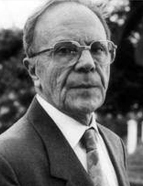

This work sought not only to examine more traditional historical themes, but also to bring the dissemination of research findings on Portuguese history conducted under new approaches to national historiography. It was indeed surprising, as he also admitted himself, that he had been chosen to coordinate such a pivotal work on 20th-century historiography, which crystallised all the progress made by historiography in the last decades but, above all, which constituted a point of departure for a new history of Portugal. To this end he gathered a large number of researchers, among whom the following names featured: Magalhães Godinho, Barradas de Carvalho (who was appointed project coordinator together with Joel Serrão), António José Saraiva, Oliveira Marques, Borges de Macedo, Veríssimo Serrão, Torquato de Sousa Soares, Jorge Dias, Luís de Albuquerque, C.R. Boxer, Frédéric Mauro, Charles Verlinden, Orlando Ribeiro, Rómulo de Carvalho, etc.
Without underestimating the considerable number of collaborators-almost 140 in all - a sign of the extent to which the historiographical community was behind this new venture, Serrão’s collaboration was highly relevant as he alone authored over 80 dictionary entries on a variety of themes: «Alexandre Herculano», «Oliveira Martins», «historiografia – na época contemporânea» [«historiography – in the contemporary era»], «Sampaio Bruno», «Antero de Quental», «Decadência» [«Decadence»], «burguesia – na época contemporânea» [«bourgeoisie – in the contemporary era] , «povo – na época contemporânea» [«the people - in the contemporary era], «emigração» [«emigration»], etc. Joel Serrão was fully aware of his own «complex, apparently disjointed evolution» (Jornal de Letras, 31-01-1989, p. 19). “Apparently”, since he also stated: «partial studies […] are part of a context without which partial things are meaningless». What then is the context that renders his varied work understandable in light of a single purpose? What did he seek to construct around the study of the 19th century in Portugal?
To answer these questions, one must go back to the text that appears to have been the starting point of Joel Serrão’s study of the 19th century: «Por uma história cultural do século XIX português» [«For a cultural history of 19th century Portugal], published in Temas oitocentistas I [19th-Century Themes I], resulting from a conference delivered at the Institut Français au Portugal in 1952.
